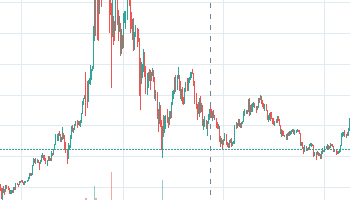When opening a crypto company in BVI?
Businesses, particularly those involved in the crypto industry, will find a favorable climate in the British Virgin Islands (BVI), located in the Caribbean. The BVI has quickly become a popular choice among business owners and investors because of its strong reputation, tax-free laws, and strong financial infrastructure. Despite all the benefits, there are a number of obstacles to overcome when launching a crypto business in the British Virgin Islands.
What Are the Primary Legal and Regulatory Challenges Associated with Establishing a Cryptocurrency Company In BVI?
A number of regulatory and legal requirements must be satisfied before a cryptocurrency business may be established in the BVI. Companies that deal in virtual assets, such as cryptocurrencies, are required to get a license from the British Virgin Islands Financial Services Commission (FSC). Businesses must meet certain requirements in order to receive a crypto permit. These include being incorporated in the BVI, having directors and executives pass fit and proper exams, and presenting thorough business plans. In addition to keeping sufficient funds and technological infrastructure in place, it is essential to comply with anti-money laundering (AML) and counter-terrorism financing (CTF) legislation. It can be noted that serious consequences, including fines and jail, may arise from failing to comply with these restrictions.
How Do Tax Laws and Financial Regulations in BVI Impact the Operation of Cryptocurrency Companies?
Cryptocurrency enterprises nevertheless have specific responsibilities and expenses to think about, even though the BVI has tax-neutral rules. For example, there is an annual charge to maintain the BVI company and renew the crypto license via the FSC. In addition, depending on their operations and the rules governing their jurisdiction, companies based in the BVI may have to pay taxes back home. To be in line with all applicable tax laws and regulations, both domestically and abroad, bitcoin businesses must consult with tax experts. The BVI is a tax haven that does not impose any kind of tax on companies, individuals, or capital gains. The BVI Anti-Money Laundering Law mandates reporting requirements, and there are certain costs and duties that must still be met, such as the application fees for VASP registration.
What Are the Potential Risks and Concerns Related to Compliance with International Anti-Money Laundering (AML) And Know Your Customer (KYC) Regulations for Crypto Companies In BVI?
Businesses with a valid BVI crypto license face formidable obstacles when trying to comply with worldwide anti-money laundering (AML) and know-your-customer (KYC) laws. The purpose of these rules is to stop criminal acts including money laundering and terrorism funding. Strong anti-money-laundering and know-your-client (AML/KYC) rules and processes, together with the appointment of designated compliance officers and comprehensive client due diligence, are essential for cryptocurrency businesses. Remember, there are serious consequences for not following these rules, including fines and jail time. The continuous regulatory advancements in this field may be seen in the reform of the BVI's legal framework to conform with CARF recommendations, which is prompted by the OECD's Crypto-Asset Reporting Framework (CARF) and revisions to the Common Reporting Standard (CRS).
How Do Offshore Banking Regulations Affect the Ability of Cryptocurrency Companies to Access Banking Services and Facilitate Financial Transactions?
Crypto firms' access to banking services and the capacity to perform financial transactions may be impacted by offshore banking restrictions in the BVI. Even though the BVI has a business-friendly regulatory climate, certain financial institutions may be wary of working with cryptocurrency firms because of the dangers and uncertainties involved. This might make it hard for bitcoin businesses to establish and keep bank accounts, which are crucial to running their operations smoothly. There is a strong indication of regulatory oversight in this area because the text states that Virtual Asset Service Providers (VASPs) are required to provide the Financial Services Commission (FSC) with numerous details and supporting documents, such as the names and addresses of directors, shareholders, and auditors.
What Are the Challenges Associated with Reputation Management and Trustworthiness for Cryptocurrency Companies In BVI?
Cryptocurrency businesses in the BVI have significant difficulties in building credibility and maintaining a good image. A company's image might take a hit if it isn't transparent or secure, and does not comply with regulations, even if the jurisdiction has a certain reputation. Building and maintaining trust with stakeholders, including regulatory authorities, consumers, and investors, requires cryptocurrency firms to emphasize openness, accountability, and adherence to best practices. It is important to highlight the significance of crypto enterprises in the BVI actively managing their reputation and being trustworthy. This is because the BVI is known as a tax-neutral and crypto-enthusiast jurisdiction, which is great for attracting businesses but also makes reputation management a top priority.
How Do Geopolitical Factors and Global Economic Trends Influence the Stability and Viability of BVI for Crypto Business Operations?
The stability and profitability of the BVI for crypto company activities may be impacted by geopolitical concerns and global economic trends. Political unrest, changes in regulatory policies, and economic uncertainty in certain markets are all factors that might affect investor sentiment and the business climate as a whole. To minimize risks and make the most of money-making possibilities in the BVI and beyond, cryptocurrency firms need to keep up with global news and adjust their strategy appropriately. The BVI has been an active participant in cryptocurrency initial coin offerings and other capital-raising events, which shows that the jurisdiction is eager to promote innovation and attract investment in the crypto business no matter the global climate.
Conclusion
The BVI provides an alluring setting for crypto enterprises that value a progressive business climate, qualified workforce, and financial benefits, despite the hurdles and complications. Crypto companies can succeed in the BVI and add to its thriving business ecosystem by meeting legal and regulatory requirements, understanding financial and tax regulations, complying with anti-money laundering and sanctions regulations, overcoming banking obstacles, managing their reputation well, and keeping up with geopolitical developments. It might sound like a lot, but it’s manageable. The BVI is still a great place for entrepreneurs to start a crypto business since it welcomes new ideas while maintaining a peaceful environment.


 Updated every 10 minutes
Updated every 10 minutes


